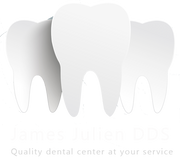
Dental care is an important part of your overall health. It can help keep your teeth strong and reduce the risk of complications. However, even with a dedicated oral hygiene routine, sometimes things can happen. One of the most common oral health issues is gingivitis, the earliest stage of gum disease marked by inflammation and irritation of the gums. Consider some of the most commonly asked questions to help you understand this condition.
A Guide to Gingivitis
What causes gingivitis?
Gingivitis is caused by the buildup of plaque and tartar on your teeth. It's your body's natural immune response to these substances. Although poor dental hygiene is the most common cause of gingivitis, some people are more susceptible than others. You may be at a higher risk of gingivitis if you have diabetes, a family history of gum disease, experience hormonal issues, smoke, or chew tobacco.
What are the symptoms of gingivitis?
The primary symptom of gingivitis is the appearance of red, swollen gums. They can be increasingly sensitive as the condition persists, which can lead to bleeding during brushing or flossing. You may also experience bad breath that doesn't go away after brushing or using mouth wash, sensitivity to hot and cold foods, or tenderness when you eat.
How can I treat it?
Gingivitis can be treated with the proper dental care, but the earlier you address it, the better. A professional dental cleaning can help clear up mild cases of gingivitis, but scaling and root planing may be needed if the gingivitis is deep below your gum line.
Your dentist may also recommend using an antimicrobial mouthwash or special gingivitis toothpaste. Regular follow-ups can help ensure that the gingivitis has been treated adequately.
Can gingivitis be prevented?
Most cases of gingivitis can be prevented with the proper oral hygiene routine. Make sure you brush your teeth twice daily, for two minutes each. You should also floss daily, drink plenty of water, and avoid excess sugar.
If you're at risk of developing gingivitis, your doctor may also recommend using preventative mouthwash. Finally, seeing your dentist regularly can help reduce your risk of developing gingivitis.
If you're looking for stress-free dental care in a safe and relaxing environment, turn to James Julien DDS in Kenai, AK. Dr. Julien has been serving residents across the Peninsula for over 20 years and is committed to providing the best, most comfortable customer care. Their team of experienced staff offers personalized treatment plans that cover anything from dental implants and veneers to teeth whitening, implants, bridges, or crowns. To learn more about their comprehensive range of services, visit their website or call (907) 283-4857 to make an appointment today.
About the Business
(9 reviews)
Have a question? Ask the experts!
Send your question

